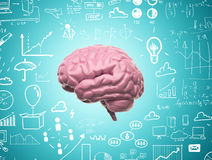
His book, Gödel, Escher, Bach: An Eternal Golden Braid, was intended to demonstrate that. So what happened?
AI language-processing neural networks have no understanding of context or meaning with respect to the symbols they manipulate, so it’s hard to say if we are any closer to an AI behaving with human-like intelligence. While Tegmark can’t rule it out, he doubts that we will achieve what he considers human-level artificial general intelligence (AGI) any time in the foreseeable future (i.e., the ability for an AI to generally accomplish any task that humans can at least as well as humans). And AGI is what Hofstadter sees as the Holy Grail of AI.
There have been no indications that AI programs will ever break free of these constraints, and further, no demonstration that humans are rule-governed in the way that Hofstadter posits. Indeed, the view that human consciousness is something unique is the most tenable philosophical position unless we learn definitively otherwise.
There is, quite simply, no mechanical explanation of how the human mind has emerged from brawling chimpanzees over the course of millions of years of evolution.
Walter Myers III, “We went back to visit Gödel, Escher, and Bach…” at Mind Matters News
That keeps happening with materialist theories. We thought their hat had way more rabbits.
Further reading on theories of the human mind:
Panpsychism: You are conscious but so is your coffee mug Materialists have a solution to the problem of consciousness, and it may startle you
How can consciousness be a material thing? Maybe it can’t. But materialist philosophers face starkly limited choices in how to view consciousness
and
Four researchers whose work sheds light on the reality of the mind. The brain can be cut in half, but the intellect and will cannot, says Michael Egnor. The intellect and will are metaphysically simple.